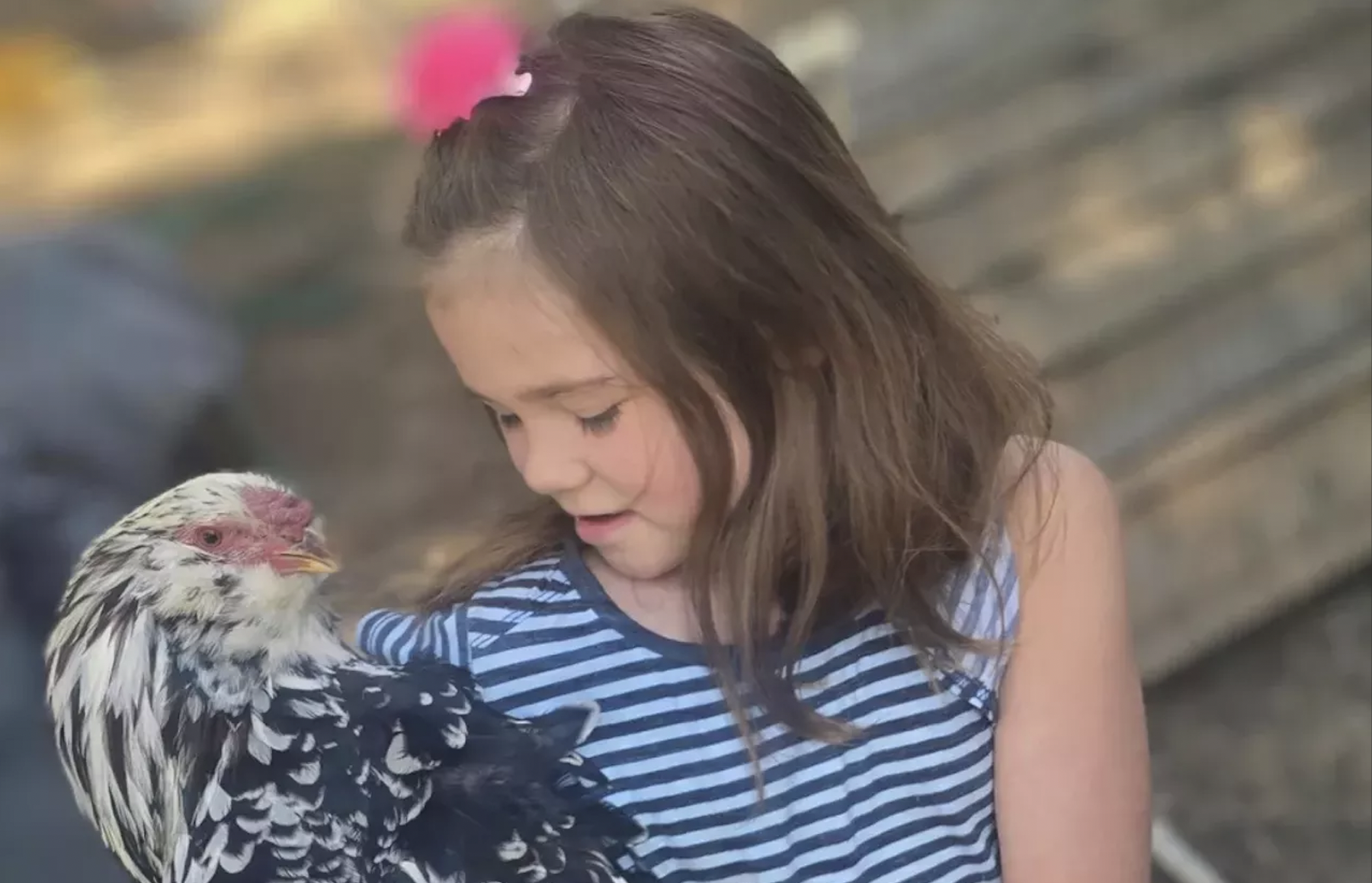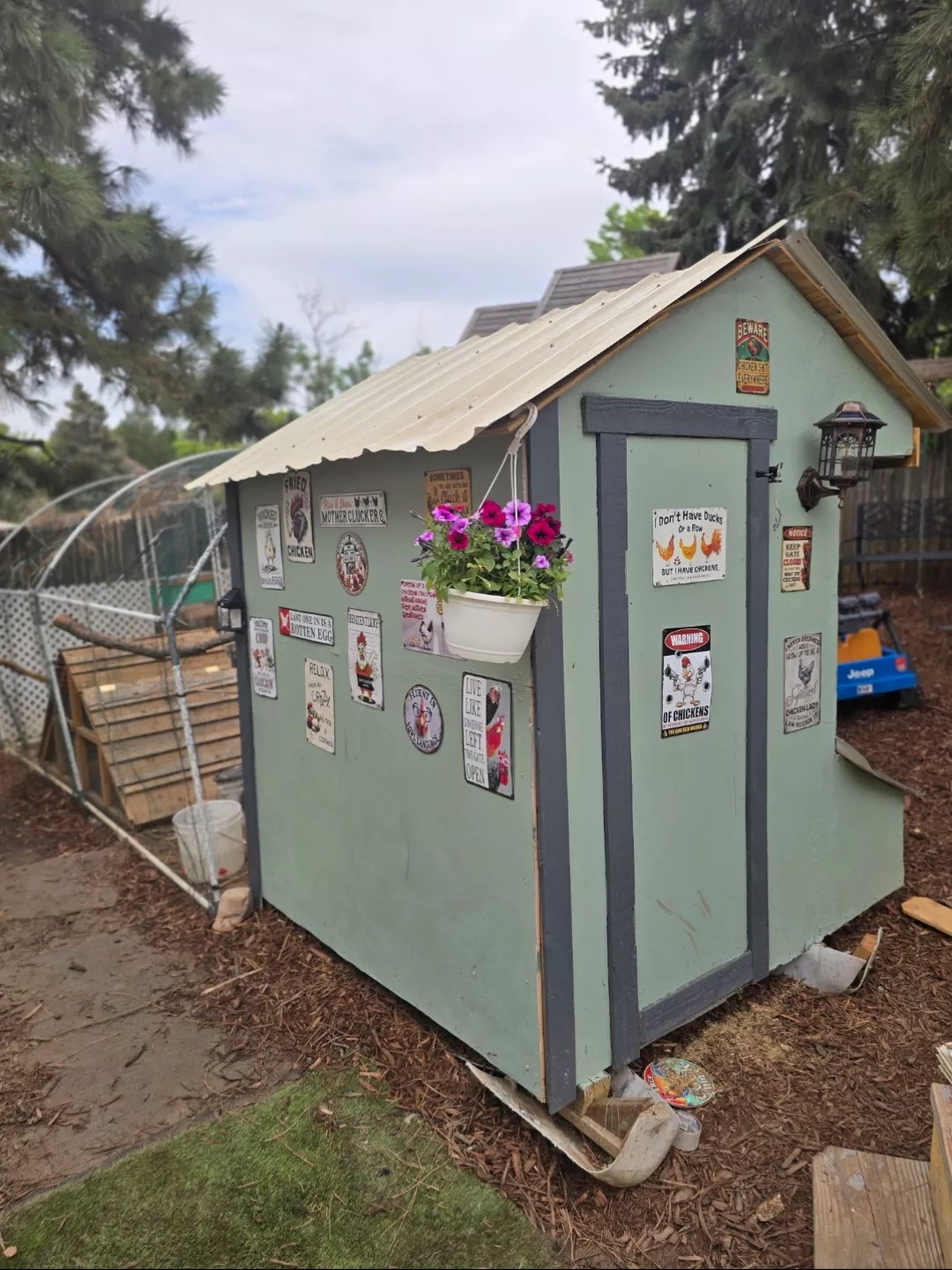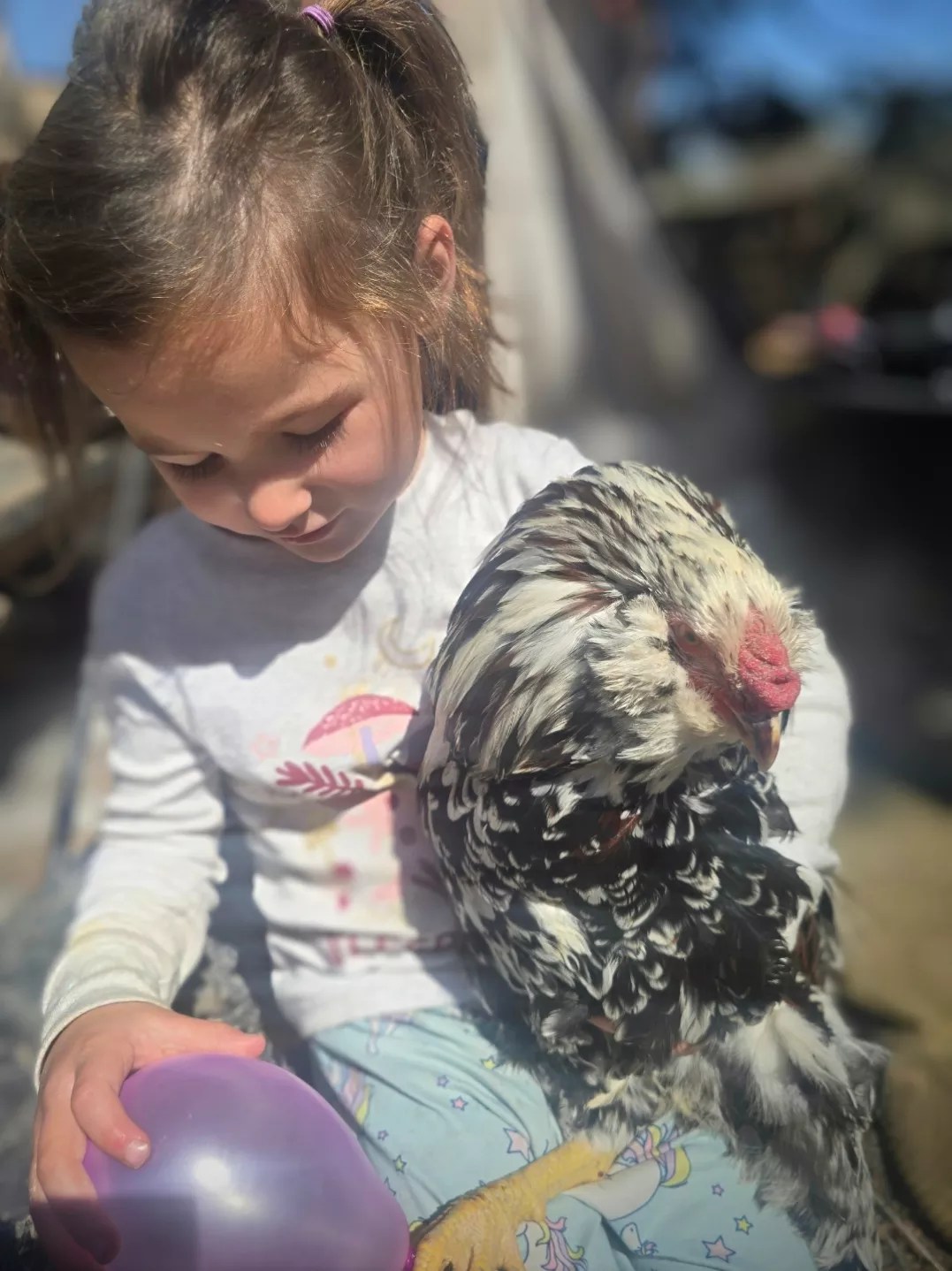
Heather Krueger

Audio By Carbonatix
In November 2022, Heather Krueger’s twenty-year-old son, Ethan, took his life after struggling with personal issues and hanging with the “wrong crowd of people,” she says. After laying her son to rest, Krueger looked towards animals as a way to cope, but that can also turn ugly, she found out.
While dealing with the loss of her eldest son, the family’s dog was mauled by another dog Krueger was fostering, and the pet eventually died. Krueger knew that her seven-year-old daughter Liliana, who saw the attack, was also hurting.
Like Krueger, Liliana loves animals, and wanted a new companion, according to her mother. Instead of adopting another dog, Krueger had other ideas for their Aurora household.
“I started looking at the price of fertilized eggs online to hatch, and they were pretty pricey,” she says. “[While] looking for another dog in the shelter, I saw Kevin.”
But Kevin isn’t a dog, or a cat. He’s a rooster.
“He was $5, and I thought that would be perfect,” Krueger recalls. “We could get a rooster and have a whole thing.”
Liliana immediately bonded with Kevin and the chicks, according to her mother.

Heather Krueger’s chicken coop.
Heather Krueger
From carrying them around to telling people “Did you know I have kids?” Liliana’s relationship grew quickly. As Krueger continued to homeschool her four children, she introduced the life cycle of a chicken and wanted to demonstrate the process in-person.
Not knowing his breed, Krueger posted on Facebook chicken groups asking members to identify the rooster’s roots. Once it was revealed that Kevin was a Russian Orloff, Krueger says people were “shocked” that she had the rare heritage breed chicken under her roof.
A tall chicken originally bred in Russia, the Russian Orloff was one in the American Poultry Association’s “Standard of Perfection.” Compared to other chickens, such as Malay and Cornish breeds, Orloffs are quiet birds but will defend themselves.
However, all breeds of roosters still like to crow, even if some do it less frequently or quieter than others. Single-family homes aren’t allowed to keep roosters in Aurora, which Krueger discovered after a neighbor complained about the noise. Chickens and hens are allowed on properties with permits – but roosters, known for their loud calls at the break of dawn, are exclusively banned in Colorado’s third most-populated city.
The Krueger household received two noise complaints from neighbors in December 2024 and April 2025, according to the City of Aurora, and those calls sparked multiple visits by local animal control.
On AccessAurora, the city’s version of a 311 line, there have been several anonymous complaints about rooster crows within the area, although they don’t specify the address of the alleged noise. Krueger, who lives off South Tower Road and East Hampden Avenue, says some of her neighbors also have roosters who didn’t know they were banned in Aurora.
Krueger already had plans in motion to acquire a Russian Orloff hen to help her backyard’s chicken population, so she relocated Kevin to Elizabeth after learning of the ban, but Liliana emotions quickly changed, her mother notes.
“I think of Kevin as a special rooster,” Liliana says. “He’s a Russian Orloff; he’s sweet and endangered. I love him.”
After being told to take the issue to City Council by an animal control officer, Krueger talked with her second-grade daughter, and landed on a strategy: getting signatures in support of rewording the city’s ordinance.
On top of updating the rooster ban, suggested changes in the petition include increasing the number of chickens allowed in a single-family home from six to twelve, submitting conservation and educational program reports to the city, and low-cost fees on each bird and permits that would benefit park maintenance and conservation initiatives.
The Kruegers’ petition must have a sponsor in the Aurora City Council for their suggested changes to receive a hearing, and that’s only if they gather enough signatures to equal 15 percent of the total votes in Aurora’s last municipal election, roughly 12,000 signatures. However, the two councilmembers Krueger has been talking “ghosted” her, so she’s now looking for another to help push the issue.
According to nonprofit the Livestock Conservancy, more than three dozen breeds of chickens are on the endangered list, which should have an exemption from local bans like Aurora’s. But roosters do not have any exception to the ban and face a threat to conserving heritage breeds, according to Krueger. In Aurora’s ordinance, there is no distinction between loud commercial breeds and more quiet heritage breeds, like Kevin.

Liliana and Kevin soaking in the Aurora sun.
Heather Krueger
Jeannette Beranger, a senior program manager at the Livestock Conservancy, says heritage breeds aren’t just important historically, but on a commercial level, too. In the ’40s, farmers crossed the Cornish and Plymouth Rock breeds to get the “fastest growing bird,” and their offspring now dominate poultry.
“It was heritage breeds that created those genetics,” Beranger explains. “If Cornish chickens disappear, you don’t have genetics to go back to. It’s important to have both of them around for the long haul.”
As an owner of a rare breed chicken farm, Beranger understands that people think that roosters are quite loud and often provide reasons for neighbors to file noise complaints, but she says that dogs and children are a “lot louder” and “make more noise” than chickens.
Whatever the source, noise in the Krugers’ neighborhood has caused complaints, according to the City of Aurora, which stands by its rooster ban over “noise concerns.”
“This has always been city ordinance. City animal services have been in touch with the Krueger family multiple times this year, after the city received anonymous complaints in April, May and June,” City of Aurora spokesperson Jennifer Soules says. However, discussions about roosters are still “ongoing,” she adds.
In addition to owning Kevin, the Krueger family has a dog, five adult chickens, two ferrets, two cats, bees and, at times, baby chickens up for adoption. In the process of learning how to raise poultry, Krueger says that she feels better serving her kids fresh eggs as they learn more about the importance of chicken farming and feeding a household.
While the family continues to advocate for heritage breeds in the city, Liliana and her family visit Kevin on the outskirts of Elizabeth, where he is staying with a friend, Krueger says.
“If they don’t believe that something is right, they can go through the correct channels and create change in the world,” said Krueger. “It’s also important for [Liliana] and my kids to see that change doesn’t necessarily come easily. There’s a lot of hard work, effort and behind-the-scenes things that need to go into making things change for the better.”
As of June 27, the petition has received nearly 764 digital and in-person signatures, with the majority being on change.org. However, based on Aurora’s city code, only physical signatures are accepted.